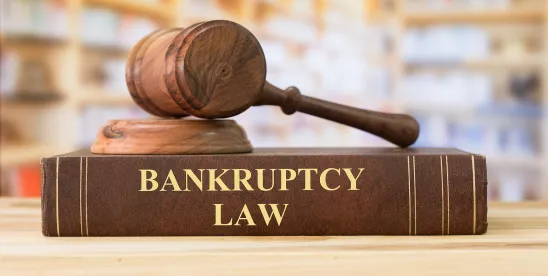Recently, the Bankruptcy Court for the Northern District of Illinois issued an opinion in In re 301 W N. Ave., LLC, dismissing a debtor’s bankruptcy filing for lack of proper authority to file and discussing the considerations for enforcing a requirement that an Independent Manager approve a bankruptcy filing for a Delaware limited liability company. 2025 WL 37897 (Bankr. N.D. Ill. 2025). The opinion is consistent with “Authority to File” opinions regularly provided in structured finance transactions involving Delaware LLCs that have Independent Managers whose consent is required to file bankruptcy. Practitioners should be aware of the Bankruptcy Court’s analysis concerning LLC agreements and may want to update future Authority to File opinions to reference this case.
Case Background
On January 6, 2025, the Bankruptcy Court dismissed a chapter 11 bankruptcy case, holding that the Debtor, which was organized as a Delaware LLC, lacked the requisite authority to file its bankruptcy petition under Delaware law. Prior to the bankruptcy filing, the Debtor entered into a $26 million secured Loan Agreement, which required the appointment of an Independent Manager. The Loan Agreement further required that the Debtor’s governing documents require the Independent Manager to consent to certain significant business decisions, including whether to authorize the Debtor to file bankruptcy. The Debtor’s LLC Agreement complied with the Loan Agreement’s requirements. The Debtor’s LLC Agreement also required the Independent Manager to consider the interests of the Debtor, including the Debtor’s creditors, when making any significant business decision, including any decision to file bankruptcy. Id. at *11. Nevertheless, the Debtor filed bankruptcy without the Independent Manager’s consent.
The Debtor’s lender filed a motion to dismiss the bankruptcy case, arguing that the Debtor lacked authority to file the bankruptcy petition because it failed to obtain the Independent Manager’s consent, as required by the LLC Agreement. The Bankruptcy Court agreed. The Bankruptcy Court first noted that under Delaware law, an LLC can act only through the authorization provided by its operating agreement, and that here, the LLC Agreement required the consent of the Independent Manager to file a bankruptcy petition. Id. at *7. As a result, the Bankruptcy Court concluded that the Debtor lacked the proper authority to file.
The Bankruptcy Court next considered whether the LLC Agreement impermissibly restricted the Debtor’s right to file bankruptcy. In this case, the LLC Agreement required the Independent Manager to consider only the interests of the Debtor, including the Debtor’s creditors, when deciding whether to file bankruptcy. Id. at *11. The LLC Agreement also expressly instructed the Independent Manager not to consider the interests of other third parties, including affiliates or groups of affiliates, when exercising its decision-making authority. Id. at *12. Although the Debtor argued that these provisions constituted an inappropriate restriction on the Debtor’s ability to file bankruptcy, the Bankruptcy Court concluded that restricting or eliminating the Independent Manager’s duties to the Debtor’s affiliates or groups of affiliates was “entirely consistent with Delaware law and cannot be construed to contravene public policy.” Id. at *12. After concluding that the LLC Agreement did not impermissibly restrict the Independent Manager’s obligation to consider the Debtor’s interests, and having already concluded that the Independent Manager did not consent to the bankruptcy, the Bankruptcy Court granted the motion to dismiss.
The Debtor appealed the Bankruptcy Court’s decision (appeal pending).
Potentially Updating Authority to File Opinions
Authority to File opinions are legal opinions provided in many structured finance transactions that address whether, under the terms of the applicable LLC agreement, the requirement that an Independent Manager consent to a bankruptcy filing of the LLC would be governed by state law, and not federal law. In other words, Authority to File opinions address whether a provision requiring an Independent Manager to consent to a bankruptcy filing would be preempted by federal law as an impermissible restriction. Authority to File opinions are only provided for LLCs because the law regarding corporations and partnerships is well settled.
The language in the 301W N. Ave Debtor’s LLC Agreement concerning what the Independent Manager should, and should not, consider is similar to language used in many LLC agreements that are subject to Authority to File opinions. In particular, since the In re General Growth Properties, Inc. bankruptcy case in 2009, many LLC agreements provide that Independent Managers should consider only the interests of the LLC, including its creditors, in deciding whether to consent to a bankruptcy, and should not consider the interests of affiliates or groups of affiliates. As the Bankruptcy Court here expressly analyzed such a provision, practitioners may want to update their Authority to File opinions to specifically reference 301 W N. Ave.
Conclusion
301 W N. Ave re-affirms the validity of LLC agreement provisions requiring an Independent Manager’s consent to file bankruptcy when the Independent Manager is required to consider the interests of only the LLC, including its creditors, and not the interests of the LLC’s affiliates or groups of affiliates. Accordingly, 301 W N. Ave also re-affirms the analysis used in Authority to File opinions in structured finance transactions.






 />i
/>i
